China is pushing for Hong Kong’s unification and “cleansing” its civil society, the Mainland Affairs Council (MAC) said in a report published on Monday
The report analyzed the situation in Hong Kong as China last month celebrated the 25th anniversary of the handover of the territory’s sovereignty from British to Chinese rule.
The promulgation of Hong Kong’s National Security Law more than two years ago led to an exodus of residents as the territory tumbled in a number of international freedom indices, the report said.
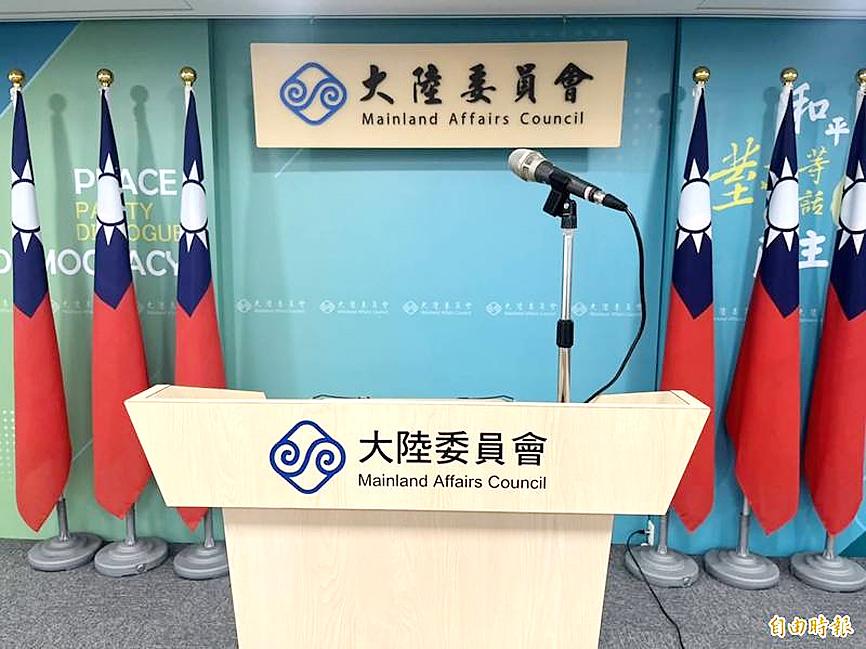
File photo
There were 7,403,000 residents in Hong Kong at the end of last year, a fall of 23,600 residents from 2020, it said.
The law suppresses the freedoms and human rights of Hong Kongers, as seen by the increase in prosecution of student protesters, political opposition party members, democracy advocates, trade unions and civil groups, the report said, adding that at least 60 civic groups were forced to disband or suspend operations in the past year.
When Chinese President Xi Jinping (習近平) last month visited the territory to celebrate the anniversary of the handover, he emphasized Beijing’s control of the territory as a defining feature of the “one country, two systems” model, the report said.
Beijing’s influence over Hong Kong’s electoral system requires elected officials to be “patriots,” a deviation from the territory’s Basic Law, which stipulates a “Hong Kong governed by Hong Kongers,” the report said.
The Hong Kong Legislative Council is gradually coming under the control of the Chinese National People’s Congress, prompting fears that controversial laws could easily be passed, it said.
There have been no developments in official exchanges between Taiwan and Hong Kong due to tensions across the Taiwan Strait, it said, adding that commercial and people-to-people exchanges remain strong.
In a show of support to Hong Kongers, Taiwan amended its Regulations for Hong Kong and Macau Residents Studying in Taiwan (香港澳門居民來台就學辦法), which now permits high schools and vocational schools to admit students from the two territories, it said.
The Regulations Governing Residency or Permanent Residency for People of the Hong Kong Area and the Macau Area (香港澳門居民進入臺灣地區及居留定居許可辦法) was also revised to allow jobseekers from Hong Kong and Macau to extend their visas for up to a year, it added.
Taiwan has also enhanced its risk management system as Beijing tightens its control over Hong Kong, it said.
Amendments to the National Security Act (國家安全法) were passed to prevent Taiwanese from helping foreign countries or hostile foreign forces to obtain, use or leak business secrets involving “core” technologies through theft, cheating, coercion or reproduction without authorization, it said, adding that the Act Governing Relations Between the People of the Taiwan Area and the Mainland Area (臺灣地區與大陸地區人民關係條例) was amended to prevent Chinese-funded businesses from using Taiwanese companies as vessels to invest in Taiwan.
The government would continue to monitor the situation in Hong Kong closely and would take action against any national security or human rights threats to safeguard the well-being and sovereignty of Taiwan, it said.
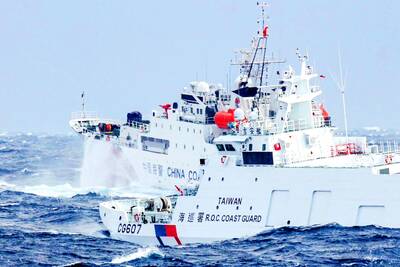
READY: The CGA said it closely monitored China’s maritime exercise, deployed vessels to shadow the Chinese ships one-on-one and set up emergency response centers Chinese navy and coast guard ships have returned to China, signaling the end of a massive maritime exercise, authorities said yesterday. The Coast Guard Administration (CGA) released images it said showed Chinese vessels sailing north in rough seas past Taiwan on Thursday, on their way to China. “All the Chinese coast guard went back to China yesterday, so although they have not officially made any announcement, we consider it over,” CGA Deputy Director-General Hsieh Ching-chin (謝慶欽) said. Beijing has not confirmed the drills and the Chinese Ministry of National Defense did not say whether the maneuvers had taken place when asked at a
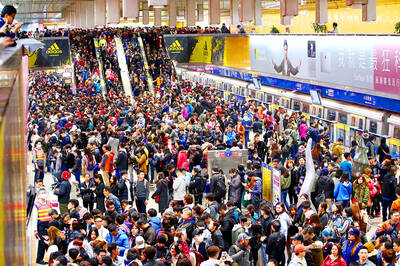
People can take the Taipei MRT free of charge if they access it at Nanjing Sanmin Station or Taipei Arena Station on the Green Line between 12am and 6am on Jan. 1, the Taipei Department of Transportation said on Friday, outlining its plans to ease crowding during New Year’s events in the capital. More than 200,000 people are expected to attend New Year’s Eve events in Taipei, with singer A-mei (張惠妹) performing at the Taipei Dome and the city government’s New Year’s Eve party at Taipei City Hall Plaza, the department said. As people have tended to use the MRT’s Blue or
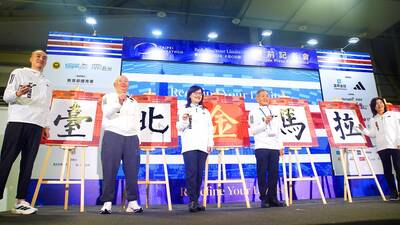
PUBLIC TRANSPORT: As some roads would be fully or partially closed, people are advised to take the MRT, with services expanded to accommodate more riders This year’s Taipei Marathon, which has obtained its first gold label certification from World Athletics, is to be held from 5am to 1pm tomorrow and would have 28,000 participants. The race is to start from the Taipei City Plaza and would go through major roads throughout the city, with traffic control implemented from 6am to 2pm, officials said. The Taipei Mass Rapid Transit (MRT) system and New Taipei City MRT Circle line would start operating at 5am on the day of the race, they said. The race would cover Renai Road, Xinyi Road, Hangzhou S Road, Aiguo east and west roads,
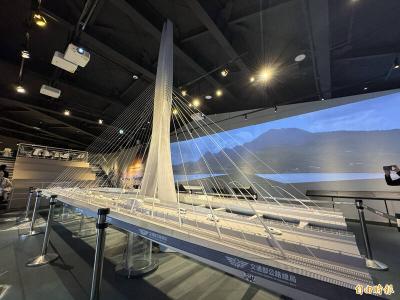
Upon its completion next year, the new Tamkang Bridge (淡江大橋) in New Taipei City is to be an important landmark in Taiwan, alongside Taipei 101, Minister of Transportation and Communications Chen Shi-kai (陳世凱) said today. The bridge is scheduled to be completed in December next year and open to the public in the first half of 2026, connecting New Taipei City’s Tamsui (淡水) and Bali (八里) districts. It is an asymmetric single-tower suspension bridge, nearly 70 stories tall, designed by world-famous architect Zaha Hadid. The bridge aims to alleviate traffic in Tamsui and on the Guandu Bridge (關渡大橋), in addition to increasing the